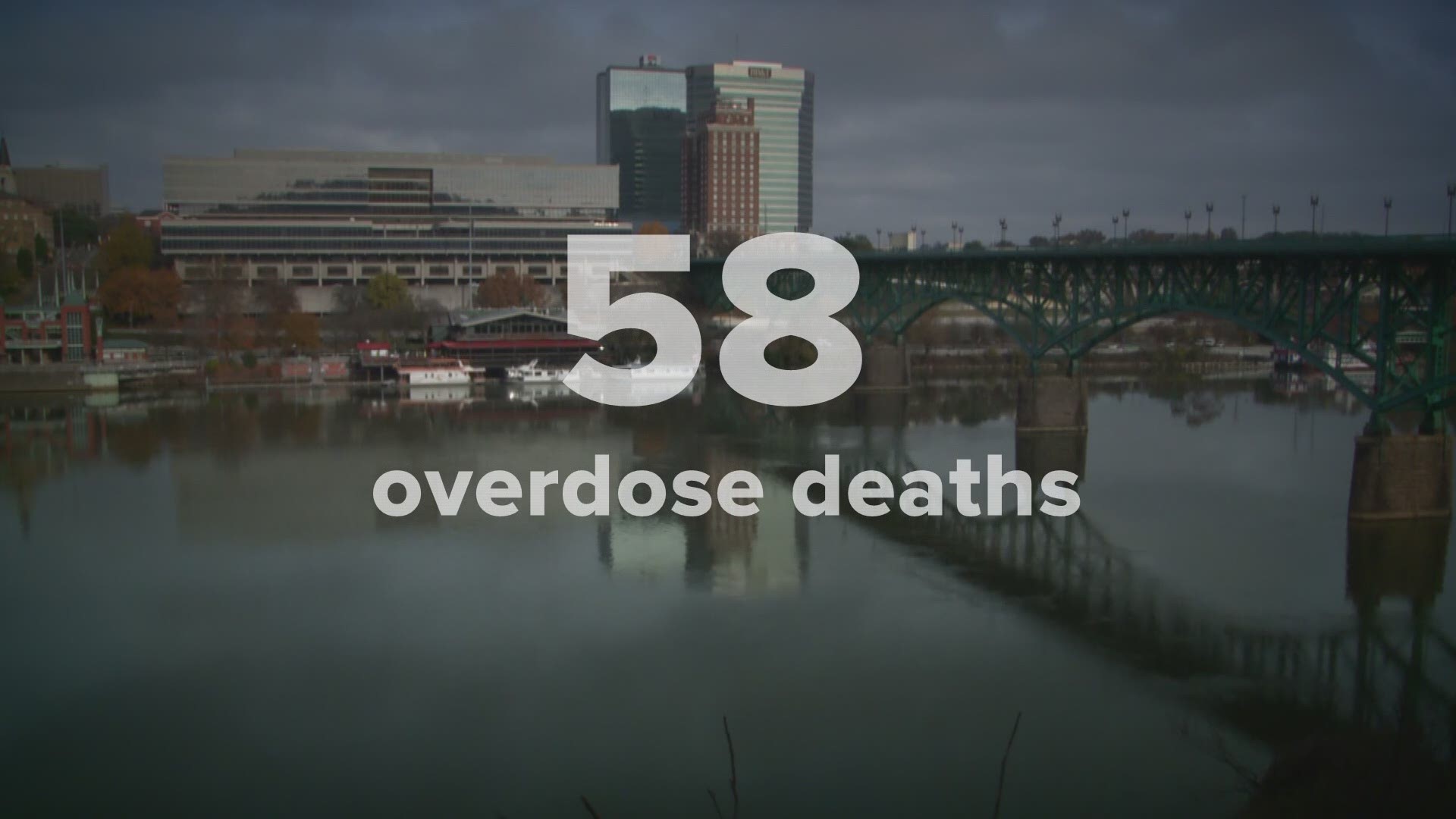KNOXVILLE, Tenn. — A local treatment center is looking for a new way to treat addiction, and to help people recover from substance abuse. This comes at a time Knox County is seeing a record number of suspected overdose deaths — more than 371 last year.
So far, there have been 58 deaths this year. That's one death per day, plus some more.
"It really is a significant problem. And it's getting worse," said District Attorney Charme Allen in January.
Treatment centers are continuing to help people battle addiction using a variety of programs.
Evolve Behavioral Health, a local treatment center, is now using brain scans in hopes of finding a more successful treatment in partnership with WAVi, a medical technology company.
"The goal is to really set the benchmark of what treatment is all about," said Andrew Parrott, who has battled addiction for years. "Drugs were the solution to my problems early in life."
His treatment revolved around faith and hope. However, he did not understand the science of why people abused opioids and other kinds of drugs.
"What we have now is a bridge that is able to take that faith and hope and desire to get better, and show the science behind what's happening," he said.
He said Evolve's new technology looks at the brain scans of people who are battling substance abuse, to better understand how they're healing. Researchers said they hope to learn more about what works in treatment and what doesn't.
"It's an incredible piece of the puzzle to now have almost a scientific document that you can share and say listen it's working, you're getting better," said Parrot.
Months of clinical trials have proven that the kinds of treatment that a person may need varies and that there is no one way to overcome substance abuse.
"So much of culture and society still has the mindset of, 'pull yourself up by your bootstraps,' and it's a willpower thing," said Parrott. "But people are dying daily. It's happening around us in Knox County."
Parrott hopes as the technology becomes more widespread, it's able to help more people and most importantly save lives.
"It really gives an upper hand that the addiction community has never had," he said.

